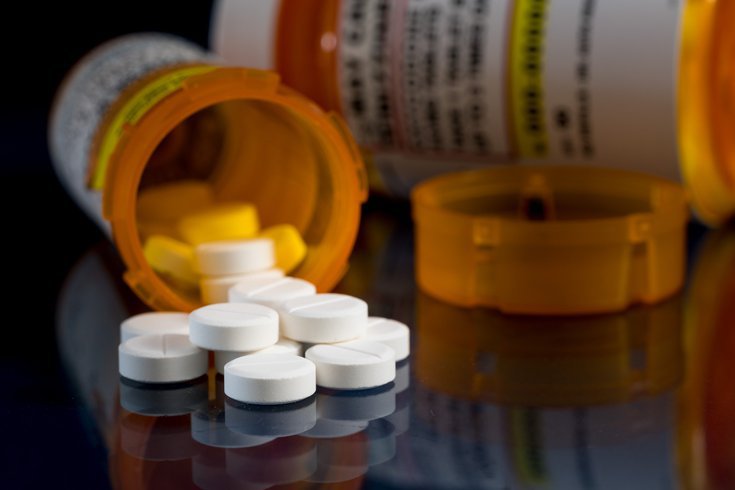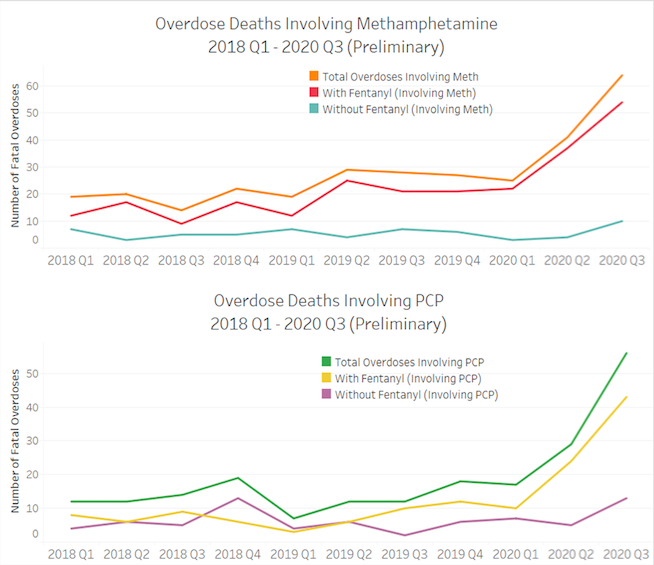
January 20, 2021
 SOURCE/IMAGE LICENSED FROM INGRAM IMAGE
SOURCE/IMAGE LICENSED FROM INGRAM IMAGE
Preliminary data from the Philadelphia Department of Public Health indicates 2020 will be the city's worst year for fatal overdoses. The synthetic opioid fentanyl is increasingly linked to these deaths as it is combined with a wider range of illicit drugs.
A record 81% of all drug overdose deaths in Philadelphia last year involved fentanyl, the synthetic opioid that has increasingly found its way into substances other than heroin.
It is expected that 2020 will be the worst single year on record for overdose deaths. Preliminary health department data through the end of September accounts for at least 950 unintentional overdose deaths. That's 13% higher than the same point in 2019 and 11% higher than in 2018.
Particularly disturbing is the rapid increase of fentanyl-involved deaths from drugs other than heroin, which has been the primary source of rising fatal overdoses in recent years.
Overdose deaths involving the stimulant methamphetamine in combination with fentanyl increased 350% during the first three quarters of 2020. Deaths involving the hallucinogen PCP combined with fentanyl increased 1,333% over the same period.
Philadelphia health department statistics on fatal overdoses from fentanyl, methamphetamine and PCP.
"Now fentanyl is in everything and everyone who obtains drugs from an illicit source is potentially at risk. To respond we will need to ensure that all Philadelphians who use drugs are aware of the danger that this drug poses and what they can do to protect themselves."
The city's health department said fentanyl is appearing more frequently in counterfeit pills that resemble prescription opioids or benzodiazapines.
Fentanyl is up to 100 times more potent than morphine and 50 times more potent than heroin. In prescription form — often a shot, patch or lozenge — it is used to treat patients with severe pain after surgery or in chronic pain patients who are physically tolerant to other opioids.
The rise of fentanyl and other synthetic opioids has accelerated drug overdose deaths nationwide over the past decade. In 2017, 59% of opioid-related deaths involved fentanyl, compared to just 14.3% in 2010.
These numbers have continued to rise at a troubling rate during the COVID-19 pandemic, increasing 38.4% from the 12-month period leading up to June 2019 compared with the 12-month period leading up to May 2020, the CDC reported in December.
"Its presence in non-opioid drugs and counterfeit pills is especially concerning as individuals who prefer these drugs may have had little exposure to such a potent opioid and may be at an even greater risk for overdose," Viner said.
In the year ahead, the health department plans to lead a community education initiative to spread awareness and prevent overdoses involving fentanyl drug mixtures. The program will include distributing fentanyl test strips and naloxone, the anti-overdose drug used to counteract the effect of opioids.
The health department also will expand training for the public on opioid overdose recognition and naloxone use, as well as provide support for so-called "warm handoffs" to drug treatment from health care, jail, and community settings.
 Source/Philadelphia Department of Public Health
Source/Philadelphia Department of Public Health